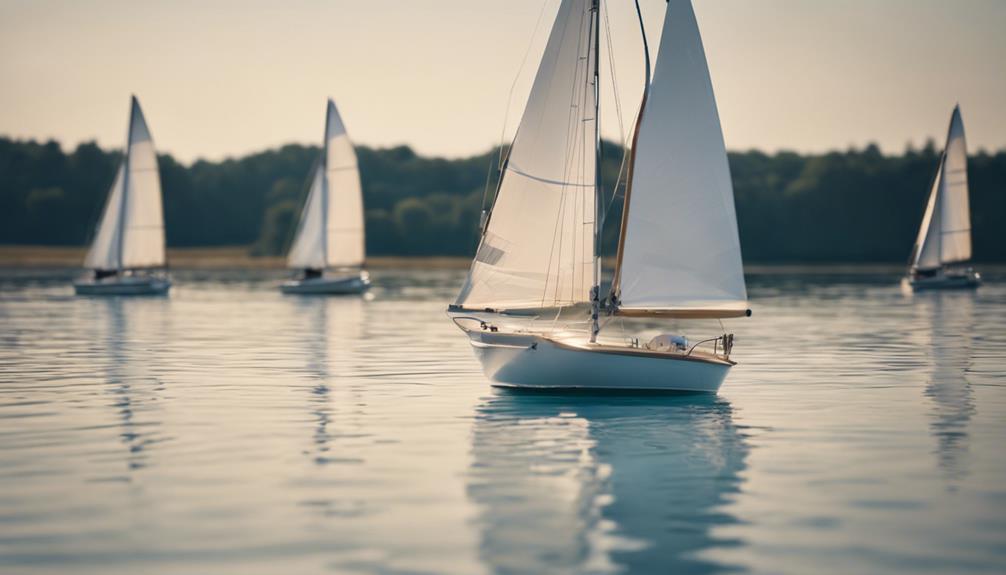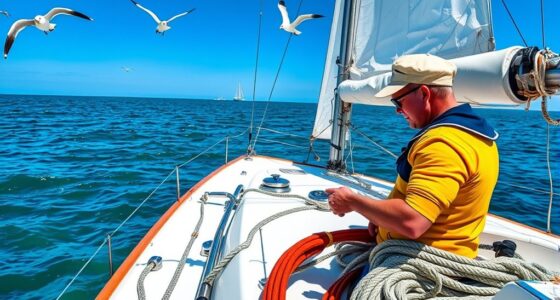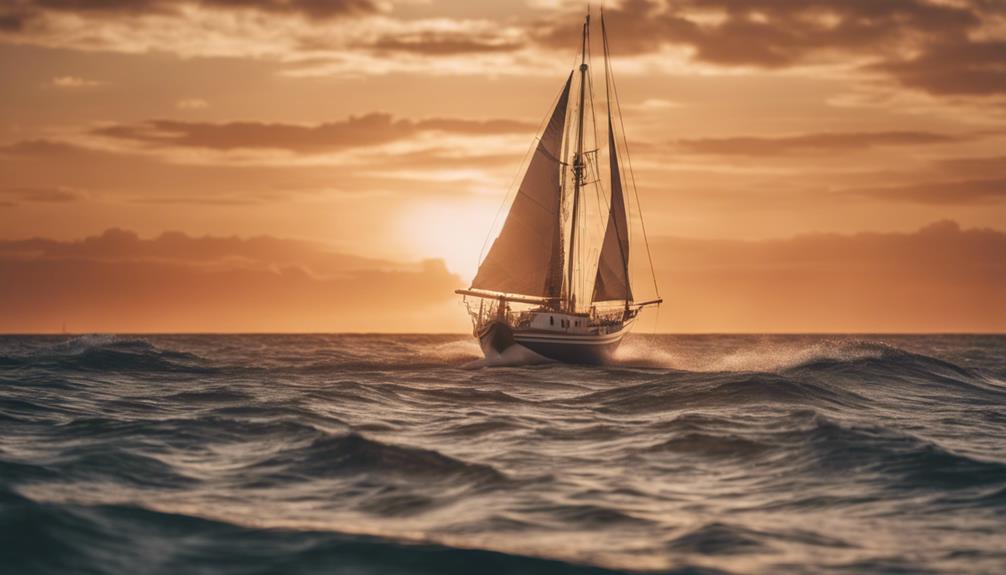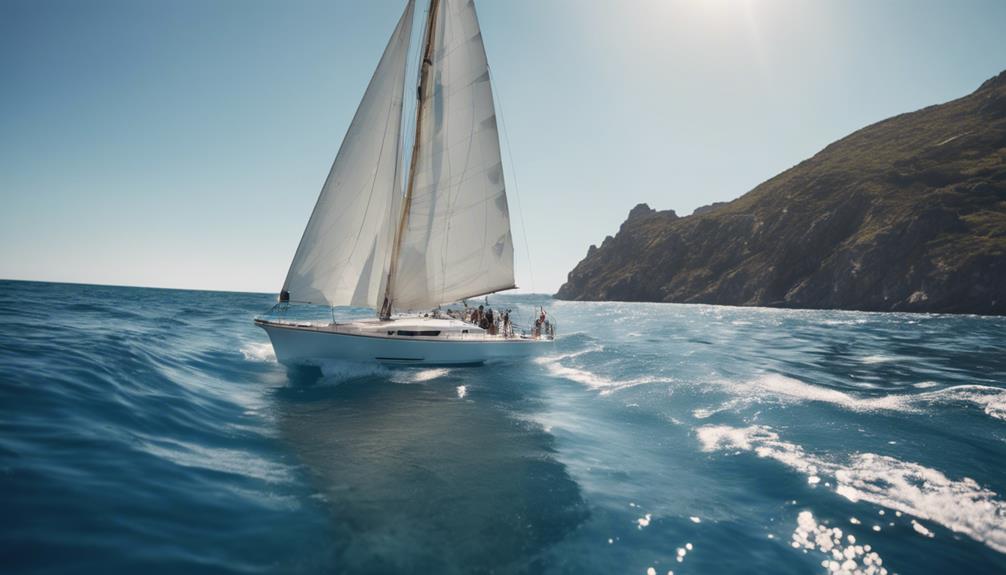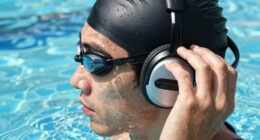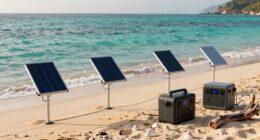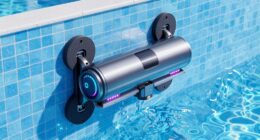Choosing between a motorboat and a sailboat really depends on what you want from your time on the water. If you love speed and ease of operation, a motorboat's quick access to open water might suit you perfectly. However, if you're seeking a deeper connection with nature and enjoy hands-on sailing, a sailboat offers an immersive experience. Plus, sailboats often come with lower costs and fuel savings. Consider how you'd like to travel and the level of engagement you prefer; these factors can guide your decision. There's more to explore about these options and what fits your lifestyle best.
Key Takeaways
- Engagement Level: Choose a sailboat for an immersive experience requiring navigation skills, or a powerboat for ease of operation and immediate enjoyment.
- Travel Style: Opt for sailboats for spontaneous long-distance journeys relying on wind, while powerboats offer flexible navigation but require fuel stops.
- Operating Costs: Sailboats typically have lower purchase and maintenance costs, while powerboats incur higher fuel and insurance expenses.
- Safety Considerations: Sailboats have a significantly lower risk of accidents, making them a safer option for cautious first-time buyers.

URLIFE 20"*3.0 Fat Tire Electric Bike for Adults, 28MPH 48V, 80-Mile, 7-Speed & Suspension, Adjustable Seat for Adults and Teens (Black)
【Power Motor】Breakthrough acceleration hits 28MPH top speed. Effortlessly climbs 30° steep hills, as you dominate urban commutes!
As an affiliate, we earn on qualifying purchases.
Cost Comparison
When it comes to cost, sailboats typically offer a more budget-friendly option than motorboats, thanks to lower purchase prices and reduced operating expenses. Sailboats rely on wind for propulsion, which means you'll save considerably on fuel costs compared to powerboats that depend on gas or diesel. With fluctuating fuel prices, this can lead to substantial long-term savings.
Maintenance costs also tend to be lower for sailboats. While larger sailboats might require more upkeep to provide similar amenities as powerboats, the overall maintenance and repair expenses usually remain more manageable. Additionally, insurance rates can vary between the two types of vessels, often favoring sailboats due to their generally lower risk profile.
Even though boat insurance isn't mandatory in all states, it's advisable for both sailboats and powerboats. You'll want to reflect on how the insurance rates align with your budget when making your choice.

DEEPOWER Electric Bike for Adults,2000W Peak Motor&32MPH Electric Dirt Bike,48V 20AH/35AH/60AH Battery, 70-160 Max Miles,Dual Suspension Ebikes for Adults, 20" Fat Tire E Bike
【High-Torque Electrified Thrills】 The Deepower electric motorcycle for adults delivers unmatched power with its Peak 1500W motor, reaching...
As an affiliate, we earn on qualifying purchases.
Experience Differences
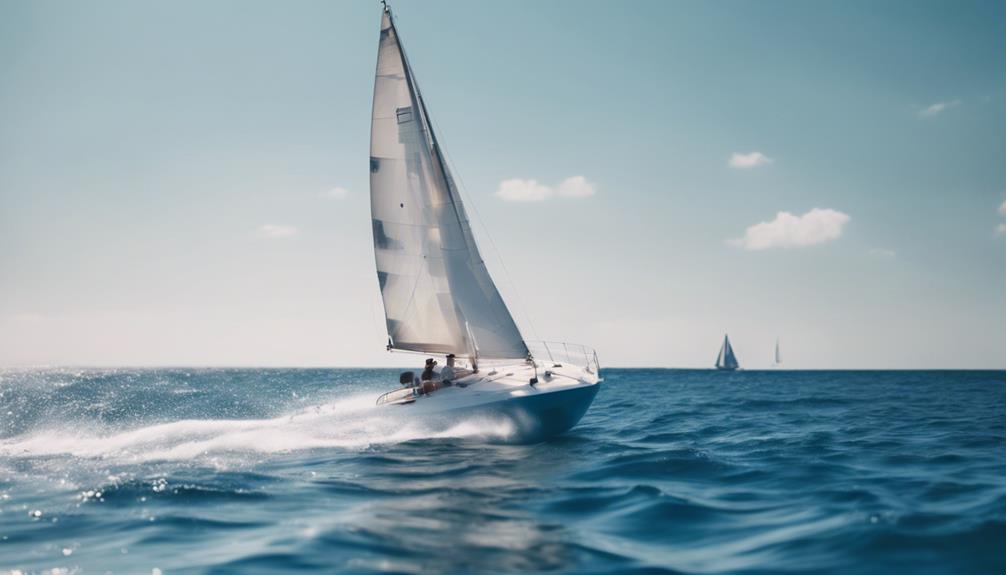
Sailboats often provide a more immersive experience, requiring you to actively engage with the vessel and develop essential sailing skills. When you choose a sailboat, you're not just getting from point A to point B; you're initiating a journey that demands your attention and adaptability. You'll need to plan for weather conditions and learn techniques like navigation and sail trimming, which can deepen your connection to the water.
On the other hand, powerboats offer a different kind of experience. They're easier to operate, allowing you to jump on the water with minimal technical knowledge. If you prefer immediate enjoyment without worrying about the wind or the intricacies of sailing, powerboats might be more your speed.
Ultimately, the level of engagement you desire plays a significant role in your decision. If you crave a hands-on adventure that emphasizes the journey and your relationship with nature, a sailboat is likely the right choice for you. However, if you're after convenience and quick travel, powerboats will cater to your recreational needs much better.
Consider what experience resonates with you the most as you make your choice.
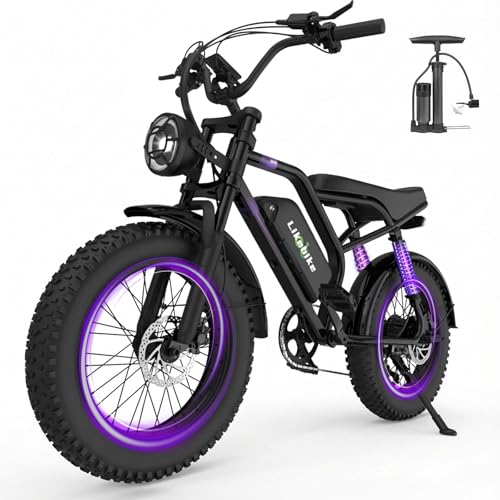
Likebike U12 Electric Bike for Adults, 2000W Peak 32MPH 20" Fat Tire Ebike, 20Ah Removable Battery 7-Speed Gear Full Suspension Mountain Bike Off Road Hydraulic Disc Brake
【2000W Peak: Release powerful power】With a peak 2000W motor, the U12 delivers impressive speed and acceleration, reaching up...
As an affiliate, we earn on qualifying purchases.
Flexibility and Travel
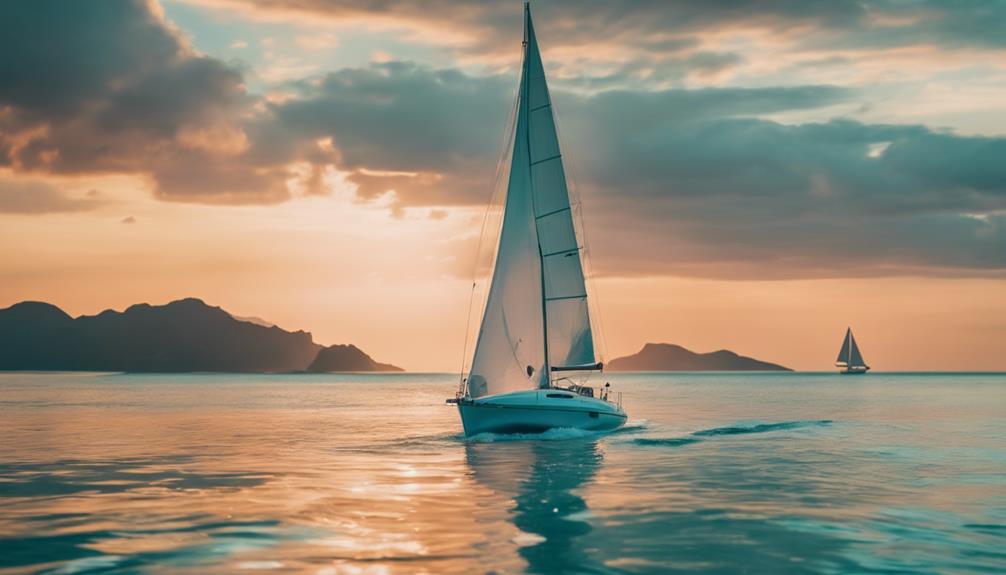
Choosing between a sailboat and a powerboat also involves considering how flexible you want your travel plans to be.
If you prefer spontaneity, sailboats might appeal to you. They can travel long distances without needing fuel stops, allowing for extended journeys and exploration, especially when the wind is favorable. However, sailing requires careful planning around weather conditions, which can add an element of unpredictability.
On the other hand, powerboats offer a different kind of flexibility. They operate independently of wind conditions, enabling you to navigate various routes and access locations, even in shallow waters. This means you can execute your travel plans without worrying about the need for favorable winds or weather. However, keep in mind that powerboats are limited by their fuel tank size, leading to more frequent refueling stops on longer trips, which can disrupt your schedule.
Ultimately, your choice between sailboats and powerboats hinges on your desired travel style. If you crave structured journeys with reliable access, powerboats may be the way to go. If you're seeking adventure and don't mind planning around the wind, sailboats could be your perfect match.

BISSELL Little Green HydroSteam Multi-Purpose Portable Carpet and Upholstery Cleaner, Car and Auto Detailer, 3618
EVERY PURCHASE SAVES PETS. BISSELL proudly supports BISSELL Pet Foundation and its mission to help save homeless pets.
As an affiliate, we earn on qualifying purchases.
Speed and Engagement
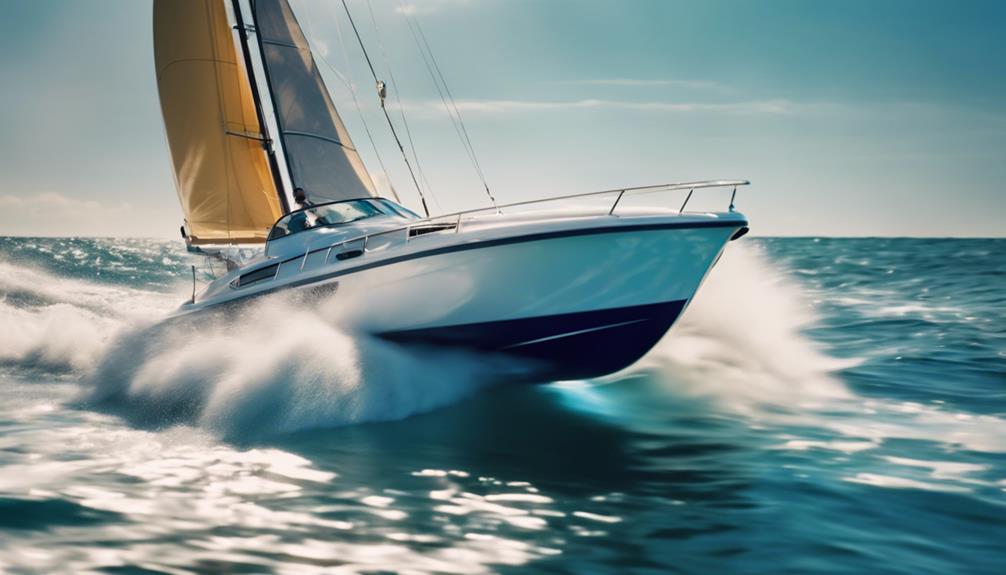
Speed and engagement play crucial roles in determining whether a powerboat or sailboat suits your boating style. If you're drawn to speed, powerboats are the clear winners, typically traveling at 15-20 knots. They cater to those who prioritize quick travel and immediate enjoyment. However, this comes with the trade-off of engine noise, which can overshadow the natural beauty of your surroundings.
On the other hand, sailboats offer a unique experience, emphasizing engagement. Operating a sailboat requires hands-on interaction with sails, navigation, and weather planning, making it a more immersive venture. This higher level of engagement fosters a connection with nature, allowing you to truly appreciate the journey rather than just the destination.
If you're an angler, powerboats might suit you better, as their speed enables you to reach fishing spots quickly. But if you prefer a leisurely outing, sailboats create a tranquil environment, perfect for enjoying the calm and serenity of the water.
Ultimately, your choice hinges on whether you value speed or the depth of engagement in your boating experience.
Safety Statistics

When evaluating safety on the water, it's crucial to take into account the stark contrast in accident statistics between sailboats and powerboats. In 2020, sailboats accounted for less than 1% of fatal boating accidents, while powerboats represented over 50%. This shows that if you're concerned about safety, sailboats are considerably safer than their powerboat counterparts.
| Type of Boat | Fatal Accidents (%) | Safety Knowledge Importance |
|---|---|---|
| Sailboat | <1% | High |
| Powerboat | >50% | High |
| Overall Safety | Higher for Sailboats | Crucial for Both |
The statistics emphasize the importance of safety knowledge and boat handling skills for both types of vessels. While sailboats tend to be safer, you still need to be well-informed to minimize risks. As a first-time boat buyer, consider resources available to help you make informed decisions about safety and operation. Understanding the differences in safety statistics between sailboat vs powerboat can guide you toward the best choice for your needs.
Powerboat Overview

Powerboats stand out as engine-driven vessels that offer quick access to open water and a range of amenities for comfort during your outings. With immediate travel capabilities, these power boats let you enjoy the water without the wait associated with sailboats. They typically cruise at speeds of 15-20 knots, making them ideal for both short fishing trips and longer excursions.
One of the advantages of powerboats is their ample deck space and interior accommodations, which can include cabins, making them suitable for extended stays on the water. They're designed with a shallow draft, allowing you to dock in shallow waters, providing closer access to beaches and scenic spots.
Additionally, operating a powerboat requires less technical knowledge than sailing. This accessibility means you can get out on the water sooner, even if you're a beginner. While some powerboats feature larger engines, many models have engines that are much smaller, making them easier to handle.
If you're looking to travel long distances without the complexities of sailing, a powerboat might just be the perfect choice for your boating adventures.
Sailboat Overview

When you choose a sailboat, you're opting for a unique boating experience that connects you with nature.
You'll need navigation skills to harness the wind effectively, making each trip both challenging and rewarding.
Plus, sailing is an environmentally friendly option, allowing you to enjoy the water while minimizing your impact on the planet.
Unique Boating Experience
Sailboats offer a unique boating experience that connects you with nature, relying solely on the wind for propulsion and creating a serene, quiet atmosphere on the water.
When you set sail, you'll feel the invigorating breeze and hear the gentle lapping of water against the hull, enhancing your connection to the environment around you.
Sailing is about more than just movement; it's an immersive experience that encourages exploration without the constraints of fuel. With modern sailboats designed for efficiency and stability, you can start long-distance journeys, traversing vast distances in favorable weather.
You'll also appreciate the active participation required when sailing. As you learn to read weather patterns and master sailing techniques, you'll develop valuable skills that deepen your appreciation for the craft.
Sailboats come in various sizes, accommodating family outings or social gatherings on the water. Whether you're seeking solitude or adventure with friends, the experience of sailing allows you to engage fully with the elements, making each trip a memorable escape into nature.
Embrace the wind, and let it guide your journey on the open water!
Navigation Skills Required
Mastering navigation skills is crucial for a successful sailing experience, as you'll need to understand wind patterns, tides, and currents to chart a safe course on the water. Your ability to read charts and utilize navigational tools will be essential, as you'll often adjust your route based on shifting weather conditions. Familiarity with sailing terminology, like points of sail and sail trim, will enhance communication and improve your operation on the water.
To guarantee your safety and the safety of your crew, you'll need to develop a range of practical skills. These include knot tying and sail handling, which are critical for managing your boat effectively. Remember, mastering sailing techniques takes years of practice and dedication, so be prepared for a journey of continuous learning.
| Skills Required | Emotional Impact |
|---|---|
| Navigation Skills | Confidence in the journey |
| Practical Skills | Safety for you and crew |
| Sailing Techniques | Joy of mastery |
Investing time in these navigation skills will not only enhance your sailing experience but also empower you to navigate the waters with confidence and safety.
Environmental Benefits
Understanding navigation skills not only enhances your sailing experience but also highlights the environmental benefits of choosing a sailboat over a motorboat.
Sailboats are an environmentally friendly option that notably reduces your impact on the marine ecosystem. Here are some key advantages:
- Minimal Fuel Consumption: Sailboats rely primarily on wind for propulsion, drastically cutting down on fuel consumption.
- Reduced Greenhouse Gas Emissions: By using renewable wind energy, sailboats produce notably fewer greenhouse gas emissions compared to their motorized counterparts.
- Less Noise Pollution: Sailboats generate less noise pollution, creating a more serene atmosphere that benefits both wildlife and your onboard enjoyment.
- Connection to Nature: Sailing fosters a deeper awareness of environmental conditions and marine ecosystems, encouraging responsible boating practices.
Opting for a sailboat means you're embracing sustainable practices and contributing to a cleaner marine environment.
With every sail, you're not just enjoying the beauty of nature; you're actively participating in its preservation.
Key Differences and Experiences
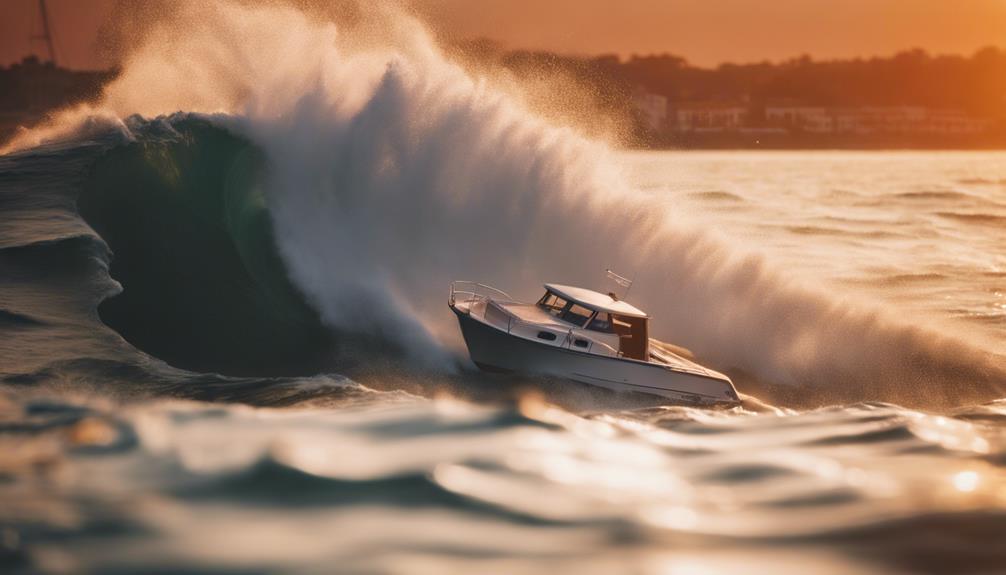
When choosing between a motor boat and a sail boat, you'll find that each offers a distinct experience shaped by speed, comfort, and the connection to nature.
Motor yachts, often larger and designed for luxury, provide quick access to open water, making them ideal for those who prioritize interior space and relaxation. If you're keen on immediate travel and scenic views, a motor sailer might be the right choice for you.
On the other hand, sailing boats emphasize the journey itself. They require active participation, fostering skills in navigation and self-sufficiency. This experience invites you to embrace the elements, making it a more spontaneous adventure. You'll connect with the environment in ways that motor boats can't offer, as sailing promotes environmentally friendly travel.
Your choice ultimately hinges on personal preference. If you crave speed and comfort, a motor yacht may suit your lifestyle. However, if you seek a deeper connection to nature and enjoy the challenges of sailing, investing in a sailing boat might be the better option.
Both paths offer unique experiences, so consider what resonates with you most.
Ease of Operation

Choosing between a motorboat and a sailboat also involves considering how easy each type is to operate. If you're looking for a user-friendly experience, powerboats are the way to go. They require minimal training, allowing you to start the engine, steer, and control speed with relative ease.
In contrast, sailboats demand extensive knowledge and skill in handling equipment, understanding weather conditions, and navigation.
Here's a quick breakdown of the ease of operation between the two:
- Powerboats: Simple to operate with basic skills; you can enjoy them almost immediately.
- Sailboats: Require a commitment to learn techniques and develop sailing skills for effective handling.
- Professional Assistance: While both types can have crew help, sailboats need specialized knowledge that powerboats typically don't.
- Engagement Level: Powerboats cater to convenience, while sailboats involve active participation and a deeper connection to the sailing experience.
Ultimately, if you're seeking immediate enjoyment with less hassle, powerboats are ideal. If you're willing to invest time in learning, sailboats can offer a rewarding challenge.
Hybrid Options and Considerations
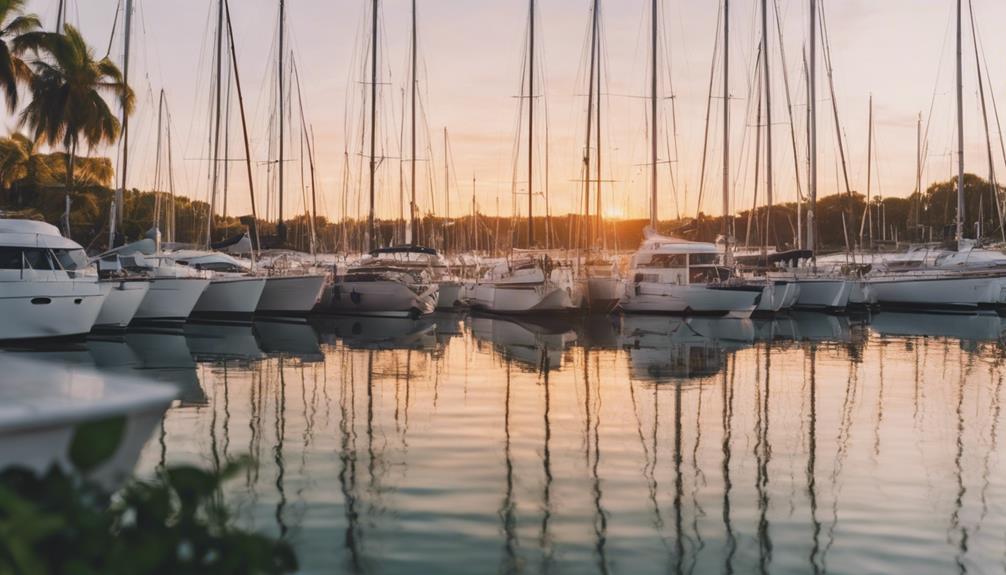
Hybrid options in boating offer a compelling blend of motor and sail capabilities, making them an attractive choice for those seeking versatility and sustainability on the water. Motor sailers are particularly appealing, as they leverage hybrid propulsion technology to provide an environmentally friendly experience. This approach allows you to reduce emissions while enjoying the benefits of both sailing and motoring.
Here's a quick comparison to help you understand the advantages:
| Feature | Motor Sailers | Traditional Boats |
|---|---|---|
| Propulsion Type | Hybrid (motor & sail) | Motor or sail only |
| Environmental Impact | Reduced emissions | Higher emissions |
| Versatility | High | Limited |
With the growing market for hybrid yachts, more boaters are embracing quieter operation and easier handling. If you're considering a family vacation, hybrid yachts can enhance bonding experiences while minimizing your environmental footprint. By understanding these advantages, you can make informed decisions that align with your recreational needs and sustainability goals. So, if you want the best of both worlds, a hybrid option might just be the right choice for you!
Frequently Asked Questions
Why Are Sailboats Better Than Powerboats?
Sailboats are often better than powerboats because they're more cost-effective, safer, and environmentally friendly. You'll enjoy a deeper connection with nature while sailing, plus the freedom to travel without worrying about fuel stops.
Are Sailboats Safer Than Motorboats?
Yes, sailboats are generally safer than motorboats. With less than 1% of fatal accidents involving them, choosing a sailboat can reduce your risk considerably, especially if you prioritize safety and responsible boating practices.
Which Is Better, a Sailing Yacht or a Motor Yacht?
When you're deciding between a sailing yacht and a motor yacht, consider your priorities. If you crave adventure and serenity, sailing's for you. If speed and comfort matter more, motor yachts will likely suit you better.
What Are the Advantages of Sailboats?
Sailboats offer environmental benefits, lower maintenance costs, and a fulfilling hands-on experience. You'll enjoy spontaneous adventures without fuel stops, improve your navigation skills, and feel safer on the water, given their low accident rates.
What are the key factors to consider when deciding between a motor boat and a sail boat?
When making a sail boat vs motor boat choice, consider factors like your preferred speed, level of maintenance, and fuel expenses. If you value a quiet and peaceful journey, a sailboat might be the best option. However, if you prioritize speed and convenience, a motorboat could be the right choice for you.
Conclusion
Ultimately, choosing between a motorboat and a sailboat boils down to your preferences and lifestyle.
If you're after speed and convenience, a motorboat might be your best bet.
But if you crave a deeper connection with nature and the thrill of harnessing the wind, sailing could be your calling.
Remember, it's not just about the boat; it's about the journey.
So, weigh your options carefully, and you'll find the right fit for your adventures on the water!

